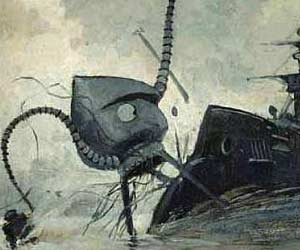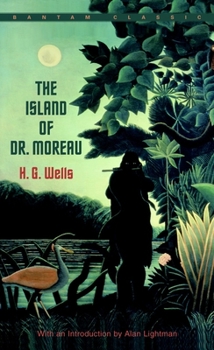The Island of Dr. Moreau
Select Format
Select Condition 
Book Overview
Ranked among the classic novels of the English language and the inspiration for several unforgettable movies, this early work of H. G. Wells was greeted in 1896 by howls of protest from reviewers, who found it horrifying and blasphemous. They wanted to know more about the wondrous possibilities of science shown in his first book, The Time Machine, not its potential for misuse and terror. In The Island of Dr. Moreau a shipwrecked gentleman named Edward...
Related Subjects
Classics Fiction Horror Literature & Fiction Science Fiction Science Fiction & FantasyCustomer Reviews
A Catastrophe
An H.G. Wells classic
Thought-provoking horror
Wells' classic on the nature of mankind
Wells' classic on the nature of mankind
The Island of Dr Moreau Mentions in Our Blog

From cozy to creepy, we've assembled a fall reading list that's perfect for curling up under a wooly blanket with a mug of hot tea in your hand. Hopefully there's something here that satisfies your autumnal mood.

A hundred years ago, novelist H.G. Wells predicted that science would be "king of the world." Titanic's Jack Dawson may take issue with that claim, but he’d have a tough time disputing the compelling influence Wells had on politics, society, and the future that extended far beyond the literary realm. Considering Wells is one the founding fathers of sci-fi (along with Jules Verne and Edgar Rice Burroughs) and the author of The Time Machine, The Invisible man, The Island of Dr. Moreau, and The War of the Worlds, that's saying something.






